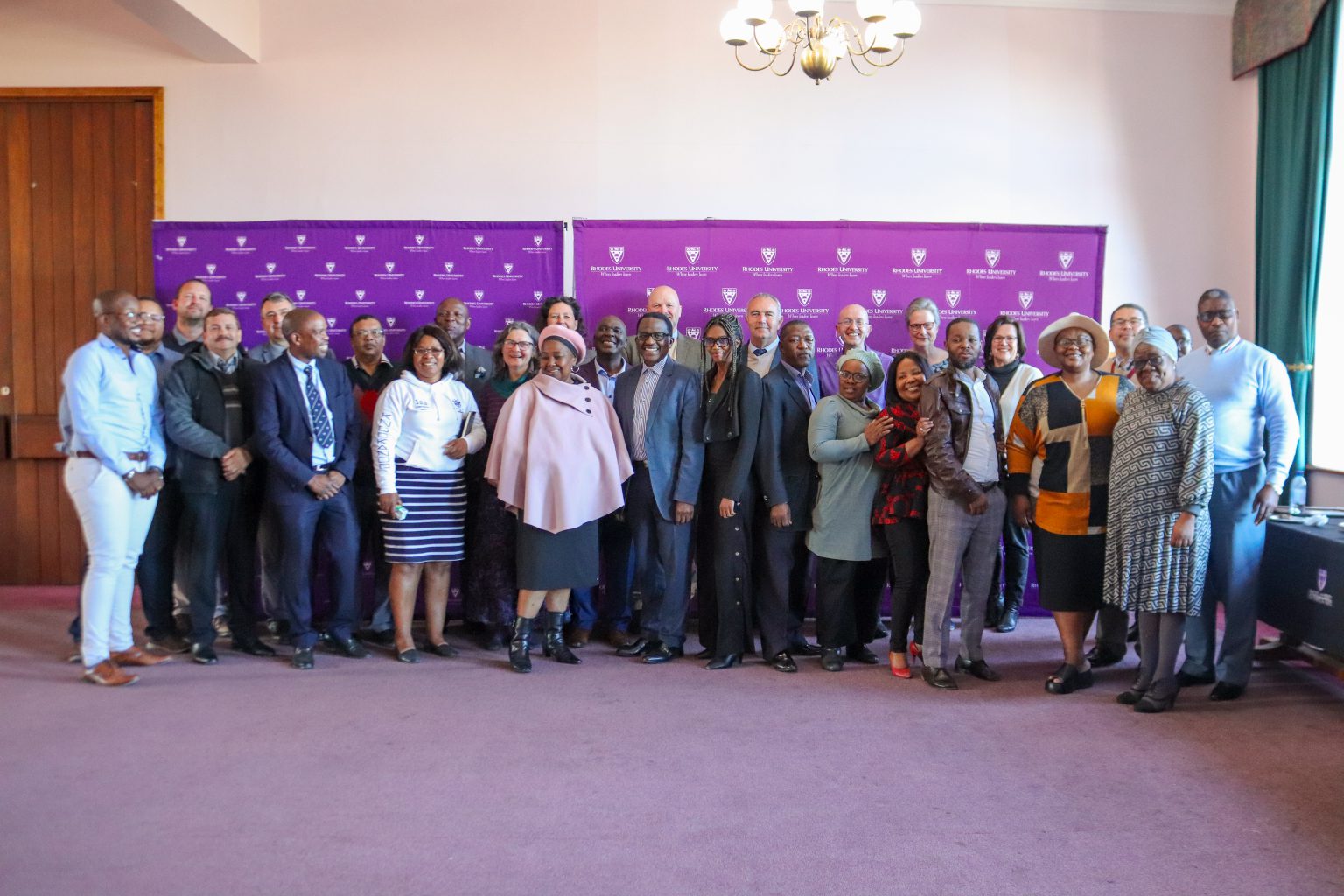By Sisakhe Ntlabezo and Ashley Westaway
Over the past decade, a team of brazen locally-based educationists has transformed the performance of Makhanda’s schools. The team has coalesced around the charismatic and inspirational leadership of Rhodes University’s Vice-Chancellor, Professor Sizwe Mabizela.
Some of the strongest indicators of the performance transformation in Makhanda’s public schools are as follows:
- The literacy comprehension rates of the city’s Grade 4 learners are more than double those in South Africa as a whole, as measured by the 2021 PIRLS study.
- The improving literacy rates have seen the city’s drop-out rate of learners plummet by 20 percentage points over the past three years.
- The Matric pass rate has galloped from around 60% ten years ago to 85% today.
- Record numbers of learners are securing Bachelor passes, and the quality of these Bachelors is rising, resulting in a tenfold increase in the number of disadvantaged local youth gaining access to Rhodes University as full-time students.
- There is a sharp upturn in the number of locals successfully graduating from Rhodes University.
In summary, what has occurred over the past decade is that Makhanda has risen from being almost anonymous in its educational outputs to being the leading educational city in the Eastern Cape. The meteoric rise of Makhanda has been brought about by a wide-ranging collective effort involving numerous public, civil society and private institutions as well as donors. For example, Rhodes University, The Department of Basic Education (DBE) and all the city’s public schools feature among the significant public institutions. There are numerous effective education NGOs in Makhanda, such as GADRA Education, the Lebone Centre, the Assumption Development Centre, Awarenet, Kagiso Trust and the Makhanda Circle of Unity Education Cluster. Numerous excellent private schools in the city, including St Andrews College, the Diocesan School for Girls (DSG), and Kingswood College, are integral to the local education ecosystem. The donor community has been wonderfully supportive, with significant contributions from the Standard Bank Tutuwa Community Foundation NPC, Energy Mobility Fund, Vestas Empowerment Trust, Robert Niven Trust, Kavod Trust, The Federated Employers Mutual Assurance Company (RF) (Pty) Ltd, Oppenheimer Memorial Trust, the TK Foundation, amongst others.
Recent advances in key education metrics have enabled the stakeholders to realise just how much progress has been achieved. The realisation has emboldened the collective to the extent that it has decided to raise its vision to a higher level and break new ground in the South African education sector. To this end, under Professor Sizwe Mabizela’s leadership and key education stakeholders’ collective wisdom, the next step is to convene a Makhanda Education Summit.
Government authorities have called many national and provincial education summits, but never before has there been a summit convened by a University Vice-Chancellor to plan how to make education the unique selling point (USP) of a city, with the deliberate intention that it emerges as the leading education city in South Africa and on the African continent more broadly. Just as Boston, Cambridge and Singapore have reached the education pinnacle in North America, Europe and Asia, the aforementioned trailblazers are planning the rise of Makhanda to the very top of the education pile in Africa.
The Makhanda Education Summit seeks to:
- Start collectively mapping out which stakeholders are doing what interventions and at what level of the schooling system.
- Reflect on how Makhanda education stakeholders can collaborate with the available resources for maximum and sustainable impact.
- Explore how Makhanda education stakeholders can build towards better alignment of the various interventions in the schooling system.
- Celebrate the journey taken thus far and the collective efforts of all involved to have grown the Makhanda education sector to where it is today.
The Makhanda Education Summit will take place on 27 – 28 January 2024.


